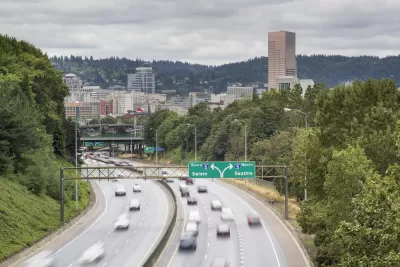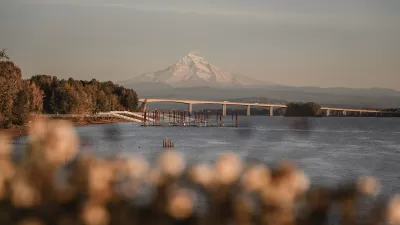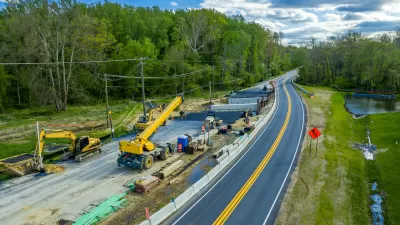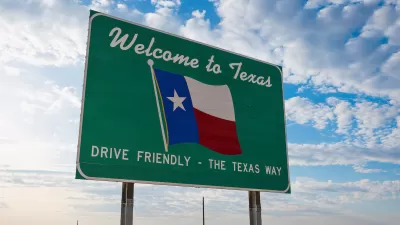A group of young climate activists are demanding an end to traffic-inducing road expansion projects and a renewed commitment to sustainable, transit-oriented transportation.

On the heels of a historic heat wave that devastated the Northwest, a group of Portland teenagers is protesting the Oregon DOT's plan to widen highways in the state, reports Laura Bliss. The protesters, who call their group Youth Vs. ODOT, are calling on the state to end freeway widening projects that contribute to increased congestion and carbon emissions.
Their demands might be having an effect, writes Bliss. "On Jan 18, the Federal Highway Administration rescinded a key approval of the controversial highway widening that’s been a prime target of the young protesters, the Rose Quarter Improvement Project along Portland’s Interstate 5," and requested a new environmental study.
As state transportation departments prepare to receive billions in federal funding, transportation advocates hope that sustainability will remain a top priority and that states will invest in public transit, bike lanes, and pedestrian infrastructure. But a slew of expansion projects planned around the country indicate these goals may not materialize.
The young Portland activists say by going forward with road projects, the city isn't living up to its progressive, bike-loving image. They call for increased investment in public transit, which would benefit more residents and help suburban dwellers reach the city more easily and efficiently. They want to see a change in the auto-oriented culture of Portland and, more broadly, the United States, which has enabled and subsidized car-dependent lifestyles. Even switching to electric vehicles, experts say, won't be enough to keep global warming from reaching catastrophic levels. Beyond stopping road expansion projects, Youth Vs. ODOT hopes to force even more drastic changes in how their state funds and prioritizes transportation projects.
FULL STORY: The Road Warriors

Manufactured Crisis: Losing the Nation’s Largest Source of Unsubsidized Affordable Housing
Manufactured housing communities have long been an affordable housing option for millions of people living in the U.S., but that affordability is disappearing rapidly. How did we get here?

Americans May Be Stuck — But Why?
Americans are moving a lot less than they once did, and that is a problem. While Yoni Applebaum, in his highly-publicized article Stuck, gets the reasons badly wrong, it's still important to ask: why are we moving so much less than before?

Using Old Oil and Gas Wells for Green Energy Storage
Penn State researchers have found that repurposing abandoned oil and gas wells for geothermal-assisted compressed-air energy storage can boost efficiency, reduce environmental risks, and support clean energy and job transitions.

Updating LA’s Tree Rules Could Bring More Shade to Underserved Neighborhoods
A new USC study finds that relaxing Los Angeles’ outdated tree planting guidelines could significantly expand urban tree canopy and reduce shade disparities in lower-income neighborhoods, though infrastructure investments are also needed.

California's Canal Solar Projects Aim to Conserve Resources and Expand Clean Energy
California’s Project Nexus has begun generating electricity from solar panels installed over irrigation canals, with researchers and state agencies exploring statewide expansion to conserve water and boost clean energy production.

HHS Staff Cuts Gut Energy Assistance Program
The full staff of a federal program that distributes heating and cooling assistance for low-income families was laid off, jeopardizing the program’s operations.
Urban Design for Planners 1: Software Tools
This six-course series explores essential urban design concepts using open source software and equips planners with the tools they need to participate fully in the urban design process.
Planning for Universal Design
Learn the tools for implementing Universal Design in planning regulations.
Heyer Gruel & Associates PA
City of Moreno Valley
Institute for Housing and Urban Development Studies (IHS)
City of Grandview
Harvard GSD Executive Education
Salt Lake City
NYU Wagner Graduate School of Public Service
City of Cambridge, Maryland





























